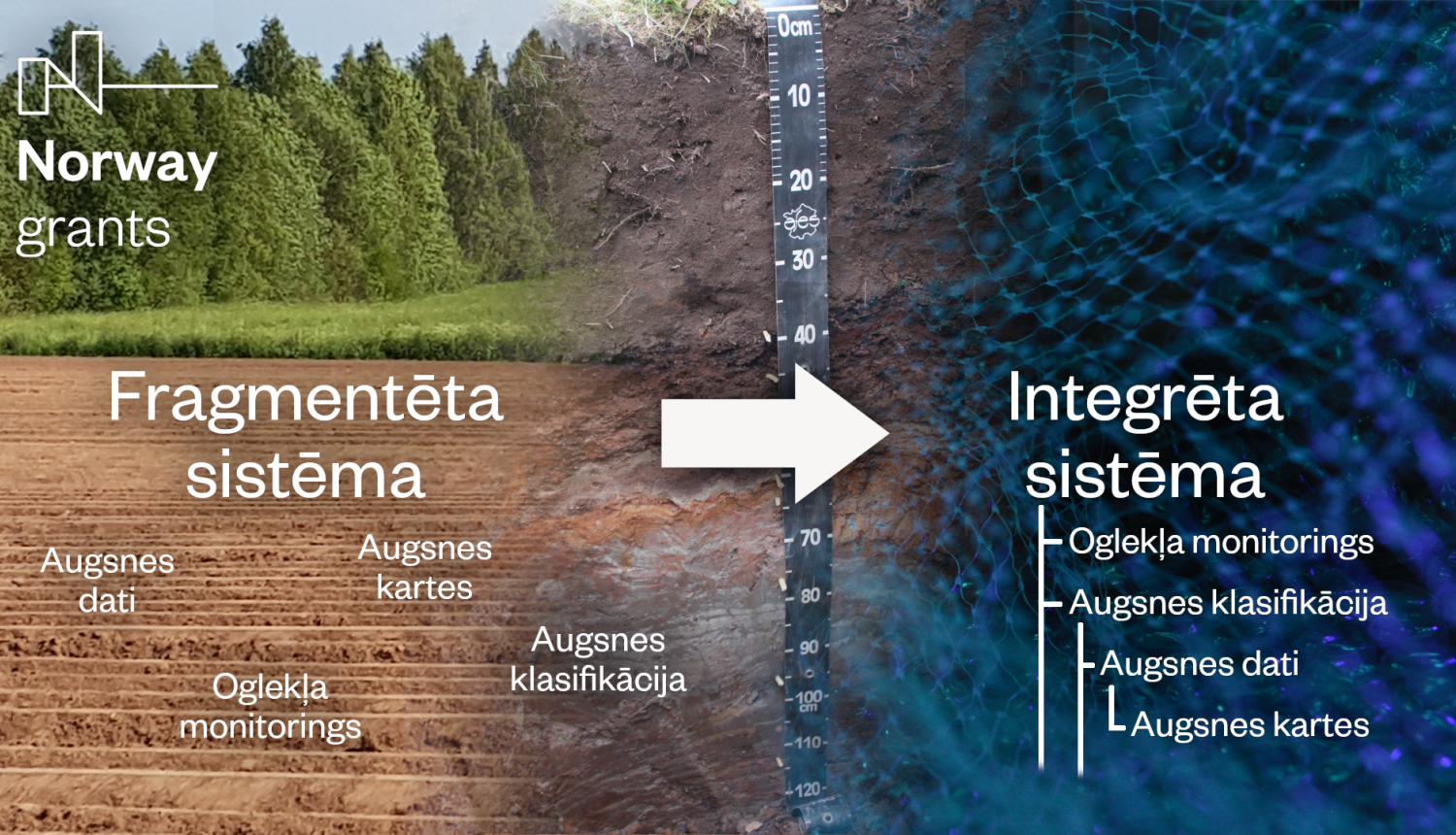The project "Enhancement Sustainable Soil Resources Management in Agriculture" (E2SOILAGRI) is coming to an end (January 31, 2024), and it is clear that all the goals set for the project will be fully achieved. It must be said that to a large extent they have already been fulfilled, the data obtained in the course of the project, the methodology is created and the system for combining soil data is working reasonably and logically, the final report of the scientists of the Norwegian Bioeconomics Research Institute (NIBIO) has been concluded about the project implementation period of less than three years.
The Norwegian colleagues remind us that great attention should be paid to the careful documentation of all project conclusion results. It is important because documentation is the basis for the full use of any system. It is important to complete all project deliverables and scientific publications to ensure proper documentation.
At the beginning of the implementation of the project, NIBIO experts recognized that agricultural soil data as such exist in Latvia, but they are fragmentary and unrelated. The project has been a step in the right direction to create a unified soil data system, which must be supplemented and improved in the future. A full-fledged national soil data system must be based on local information. Then this system will serve as a basis for the creation of new services and create added value for system users, for example, agricultural land cultivators will be able to obtain greenhouse gas balances and other easily linked data sets.
NIBIO scientists also emphasized that for work with soil data - soil qualification, description and mapping, peat moss modeling, geographic information system, etc. – qualified personnel are required. Therefore, it is important to continue the training, practice and upgrading of the qualifications of the specialists, so that the obtained soil research data are reliable and the soil data system works qualitatively.
Project partners from Norway also appreciated the involvement of Latvian partners in international working groups and networks, thus improving knowledge about the use of soil data and requirements for the development of soil policy, including international conventions. An important part of the E2SOILAGRI project is the generation of data for international reports, therefore, international cooperation is also necessary for Latvia to communicate with the EU and the UN. Participating in global processes will help represent Latvia's interests, especially because peat moss is common in Latvia and the definition of its types, as well as the measurement and monitoring obligations related to it, will definitely affect our country. Just like Latvia, the EU Green Course initiative on the restoration of wetlands, including peatlands, will affect all of Europe, and there are not a few suitable places in Latvia.
This was the third and final mission of NIBIO during the implementation of the project. The recommendations of the visit will be used to continue work on the further improvement of the Latvian agricultural soil information system.
Partners of the Ministry of Agriculture Norwegian Grants for Climate and Environment 2014-2021. In the implementation of the project "Improving sustainable soil resource management in agriculture" of the program "Climate change mitigation, adaptation to it and the environment" for the period of 2018, Norwegian Institute of Bioeconomy Research, the Latvian State Forestry Institute "Silava", the State Plant Protection Service and the University of Latvia.The project will last until January 31, 2024.
Working together for a green Europe!



